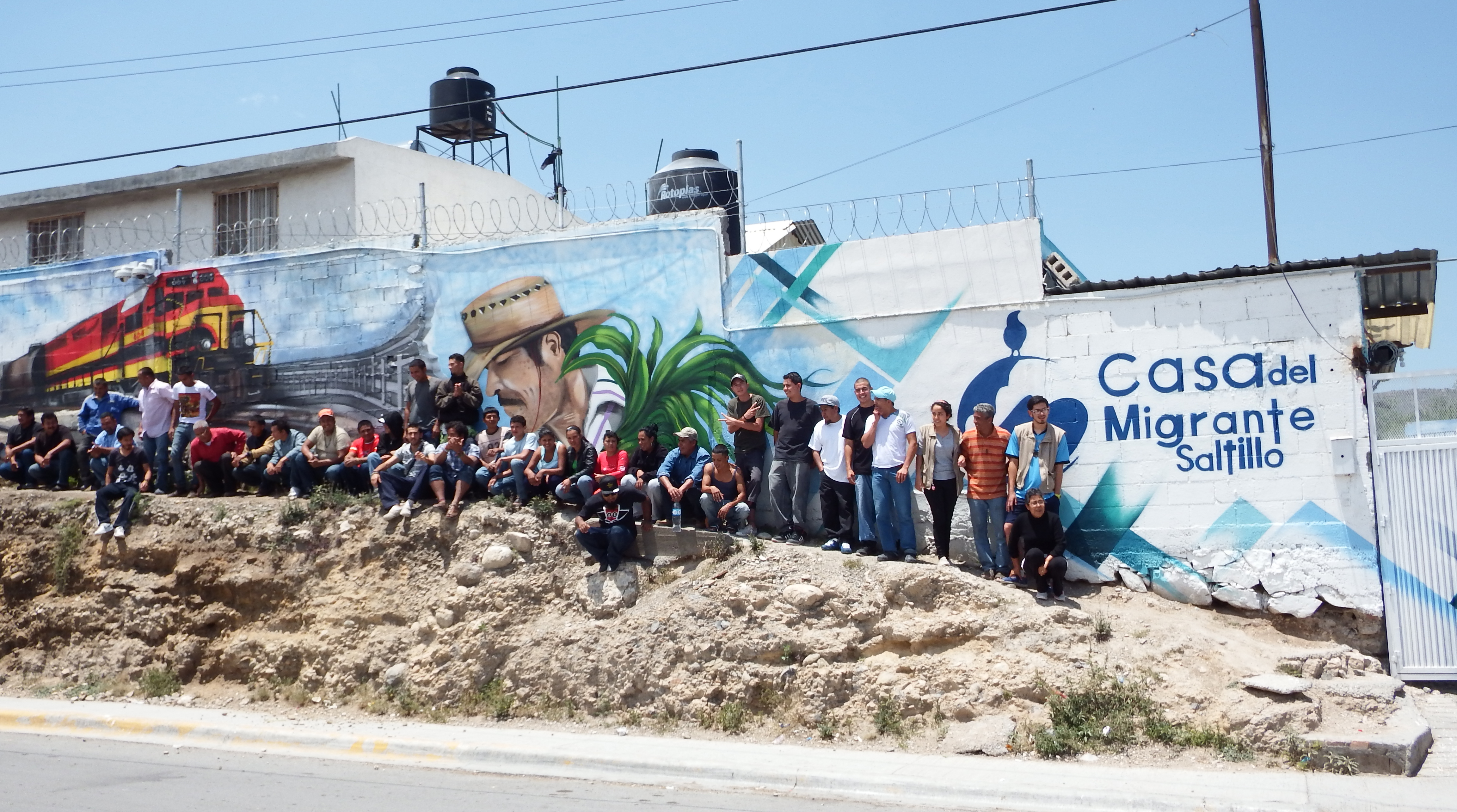The coronavirus crisis is presenting Mexico with major challenges in relation to health and migration. In both those areas, human rights defenders are helping to find solutions. But to do so, they need public recognition, protection and resources.
COVID-19 is hitting Mexico hard. By early June 2020, the Johns Hopkins University was talking about over 93,000 people being infected and more than 10,000 having died. In the middle of March, the Mexican president Andrés Manuel López Obrador declared a national emergency; all non-systemically important sectors were closed down and freedom of movement was restricted in many places. Since May 18, however, some restrictions have already been lifted again in areas where few people are infected, despite growing numbers of cases in the country as a whole.
In the meantime, violence in Mexico recognizes no quarantine precautions. Between January and March 2020, over 8,500 murders were committed, 13.5% more than in the same period last year. Furthermore, between March 15 and the end of April, the Mexican government recorded 44 attacks on human rights defenders and four murders.
Coronavirus pandemic exacerbates asylum-seekers’ situation
The current measures to stop the spread of COVID-19 are having serious consequences for men, women and children seeking asylum, most of whom come from Central America and are stuck in Mexico on their way to the USA. The authorities emptied state-run migration centers as much as was required to comply with social distancing and hygiene regulations, or else closed them down altogether. In several of the over 60 state-run migration centers, migrants have protested about the lack of protective equipment and demanded to be sent back to their countries of origin. In some cases, the National Guard reacted to these protests with undue force.
Most of the migrants who could no longer find a place in the state-run centers were sent back to their home countries. However, Central American countries temporarily closed their borders so that people are now stuck on their way home. This problem, and the fact that some people had become infected with the virus in Mexico, was barely taken into account when the state-run migration centers were cleared.
Nor can the numerous migrant hostels run by churches and NGOs take in any more people, because of hygiene regulations and an increasing pressure because they receive no support from the state. Even more migrants than before are forced to live on the streets, where they are subject to violence from criminal gangs, arrest, discrimination and an increased health risk from COVID-19.
This situation is affecting huge numbers of people in Mexico. Every year, hundreds of thousands of migrants with no documents travel through the country in order to enter the USA. Under the US “Remain in Mexico” migration policy, asylum-seekers have no longer been permitted to enter the USA since January 2019, and await the outcome of their application there. Even though the US judiciary has not yet decided whether this policy is legal, it has allowed it to be implemented during the coronavirus pandemic. By the middle of May 2020, over 60,000 people had been sent back to Mexico and more than 1,000 assaults such as murder, torture, rape and kidnapping had been reported among the asylum-seekers and migrants who were waiting there.
Human rights defenders as bridge-builders
The situation for migrants and asylum-seekers is grave: they are stranded in Mexico, where even the local population has no reliable information about the health situation in the country. Violence rules the streets and general uncertainty about the future is widespread. As the lawyer Ana Lilia Amezcua Ferrer writes, what ise needed now are transparent measures to build society’s confidence. Human rights defenders are important players, because they act independently of governments and therefore can build bridges between the state, the population and the migrants. This will help to protect the migrants and reduce the potential for conflict and violence.
Peace Brigades International (PBI) supports the migrants’ hostel “Casa del Migrante Saltillo”, in Mexico’s northern state of Coahuila. This non-state-run accommodation offers migrants humanitarian aid on their passage through the country, as well as psychological and legal support. PBI supports hostel employees who are at risk in their work by accompanying and protecting them without the use of violence. During COVID-19, this has mainly taken the form of regular phone contact, information campaigns and networking at national and international level, and advocacy work with the Mexican and international authorities.
Especially during the coronavirus crisis, the situation of the migrants demands more public attention and international support. At the same time, the situation puts pressure on the Mexican state to fulfil its commitment to guarantee the wellbeing of migrants. For their part, human rights defenders need to be recognized, protected and financially assisted by the state so that they can support the thousands of migrants in Mexico.
Helping migrants in Mexico means reaching an enormous number of people, because the effects of the migration and asylum policies can be felt throughout the region. In this time of crisis, providing humanitarian aid and defending the rights of migrants are essential to keeping the peace in Mexico.


